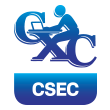- Procedures for requesting Special Assessment Arrangements
- Application for Special Assessment Arrangements
- Instructions For Centres Requesting Special Assessment Arrangements Using The Online Registration System (ORS)
GUIDELINES FOR LOCAL REGISTRARS AND SCHOOL AUTHORITIES APPLYING FOR SPECIAL ASSESSMENT ARRANGEMENTS ON BEHALF OF CANDIDATES
The Caribbean Examinations Council has produced this document to assist Local Registrars and Principals in preparing applications for candidates requiring Special Assessment Arrangements in examinations.
- The Council endeavours to ensure that each candidate is allowed to demonstrate his/her ability under assessment conditions that are as fair as possible. Where standard assessment conditions could disadvantage a candidate with special needs, by preventing him/her from demonstrating his/her level of attainment, special assessment arrangements may be authorized.
- Special Assessment Arrangements may be requested by candidates affected by a long-term or permanent physical disability or illness, a sensory impairment, a learning disability such as dyslexia, or temporary disability at the time of assessment.
- Requests for Special Assessment Arrangements must be submitted and supported by the Principal in the case of a school candidate, and the Local Registrar in the case of a private candidate. The Council is responsible for the consideration and approval of such applications.
- Requests must be submitted via the Online Registration System (ORS). Any special inquiries and requests for advice, must be sent to the Registrar at the Council’s Headquarters through the Local Registrar’s Office.
- Local Registrars are required to ensure that in all cases, the Supervisor submits, with each paper written by the candidate, a Special Report Form containing all of the details, including the actual time taken. The Examining Committees may be asked to review the candidate’s work based on the report submitted.
NB: Candidates requesting Braille, enlarged print or modified question papers must submit their requests by 15 October in respect of the May-June sitting, and 15 September in respect of the January sitting.
Applications must be submitted via the ORS.
If a Special Assessment Arrangement is approved by the Registrar, then the candidates’ Preliminary Results slips and certificates may be endorsed with a statement. This will take the form of an asterisk or appropriate symbol against the subject(s) concerned and the following statement on the reverse of the certificate:
3. General Guidance on Special Assessment Arrangements
- reduce the validity and reliability of the assessment or compromise the credibility of the award; or
- mislead the user of the certificate about the candidate’s level of attainment.
It is important to ensure that, before sitting the examination, the candidate has had practice in the use of any special assessment arrangements which are requested.
The Special Assessment Arrangements applied for should be the same as those provided to the candidate in the school’s internal examinations.
- be submitted on paper bearing a letterhead, signed and dated;
- state the title, name and professional credentials of the person(s) who evaluated the candidate;
- state specifically the nature of the disability, and the tests/techniques and resulting scores used in the diagnosis;
- describe the functional limitations arising from the disability;
- include recommendations for specific Special Assessment Arrangements.
B. IDENTIFICATION OF CANDIDATES FOR WHOM SPECIAL ASSESSMENT ARRANGEMENTS MAY BE REQUESTED
- Specific learning difficulty, for example, dyslexia
- Sensory impairment, for example, hearing impaired, visually impaired
- Medical condition, for example, epilepsy
- Emotional/behavioural difficulty, for example, Attention Deficit Disorder (ADD)
- Mental health problems
- Physical disability
- Temporary illness or injury at the time of assessment.
Additional time is usually restricted to 15 minutes for each hour of the examination (25 per cent more time). For periods of less than one hour, the additional time would be given on a pro-rata basis.
An allowance of more than 30 minutes for the entire paper may be permitted if the professional advisory service considers it necessary. It should be borne in mind that too much extra time in an examination may be tiring to the candidate and thus counter-productive.
Candidates may require assistance from an Amanuensis (Scribe)*, a Reader* or Practical Assistant*. Where such examination assistance is provided, an extra 15 minutes in the hour is permitted and separate accommodation must be arranged.
The Assistant must be appointed by the Local Registrar in consultation with the Principal and must not be the subject teacher, a relative or a family friend, caregiver, or any other person with whom there may be an apparent or perceived conflict of interest. The Assistant must be able to read and write in a manner appropriate to the examination content. For example, he/she must be able to pronounce technical terms and/or write special symbols correctly.
Hearing impaired candidates may be allowed an Interpreter for the Hearing Impaired*, someone to sign instructions and/or questions, if this is the usual method of communication in the classroom and access to the examination cannot be achieved by any other means.
It should be noted that assistance will not be provided if the validity of the assessment would be compromised. For example, the use of an Amanuensis (Scribe) will not be approved for the Visual Arts Production examinations.
(d) Modified Question Papers
- enlarged-print question papers for the partially sighted;
- braille versions of the question papers for the blind (Braille Grade 2 only); and
- electronic versions of question papers (on compact disk) to facilitate the use of appropriate software (screen reader) for the visually impaired. Candidates should advise CXC in advance of the type of screen reader used as well and the type of computer used eg, PC or Macintosh.
(e)Modified Stationery
- enlarged print graph paper
- enlarged print mathematical tables.
Candidates may be permitted to use a Computer (Word Processor), solely as an alternative to handwriting. The relevant guidelines are on page (vii) of the Appendix.
The use of other mechanical or technological aids will be permitted for candidates who are unable to write or have difficulty in writing, if this is the usual method of written communication. Use must not be made of a thesaurus, spell checker or similar electronic device, whether part of word processing software or otherwise.
Permission will not be granted if the request is made on the grounds that a candidate has untidy writing.













